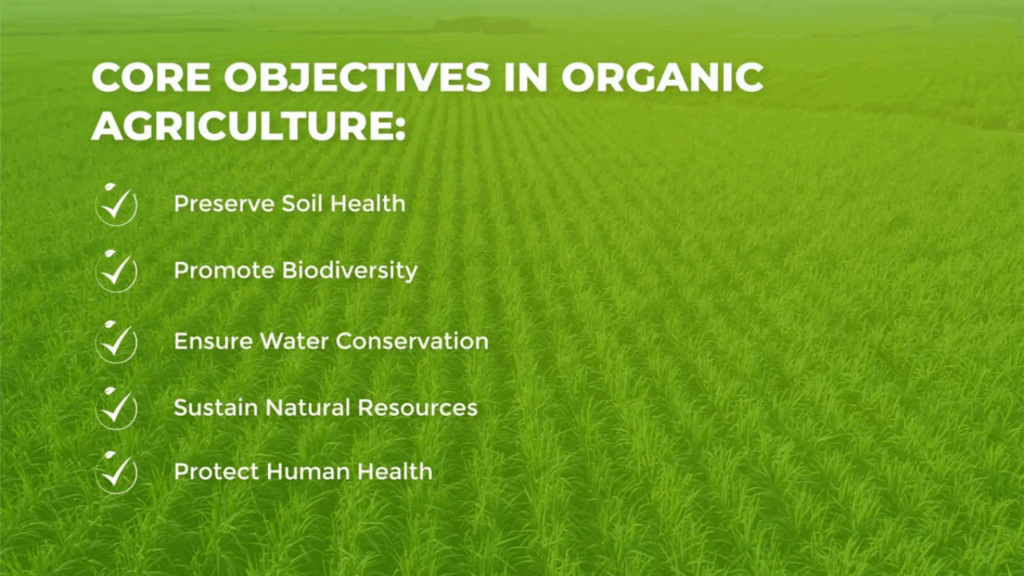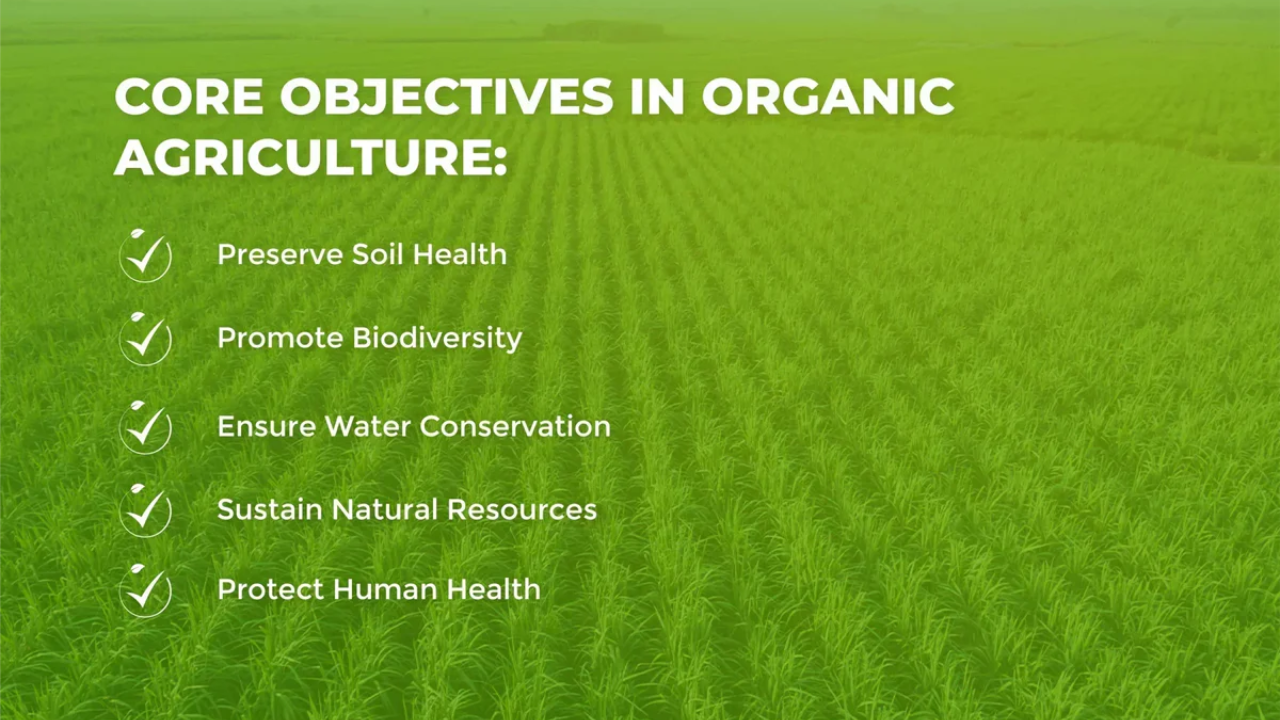
Modern agriculture has been a double-edged sword—while it has increased food production, it has also led to overuse of chemical fertilizers, pesticides, and excessive irrigation. This has resulted in soil degradation, water pollution, and reduced groundwater levels. Organic farming, on the other hand, offers a sustainable alternative that not only produces healthy crops but also conserves two of our most critical resources: water and soil.
This article explores how organic farming methods improve soil health, reduce water wastage, and contribute to long-term environmental resilience.
Why Soil and Water Conservation Matters
- Soil degradation affects fertility, leading to desertification and reduced crop yields.
- Water scarcity impacts both farming and human consumption, with agriculture accounting for nearly 70% of freshwater use worldwide.
- Conventional farming practices like over-irrigation and chemical use accelerate soil erosion and pollute water sources.
Organic farming directly addresses these problems through natural techniques that preserve ecological balance.
How Organic Farming Conserves Water
- Soil Moisture Retention
Organic matter, such as compost and manure, improves soil structure, helping it retain more water for crops. - Reduced Irrigation Needs
Because organic soils store more moisture, farms need less frequent irrigation compared to conventional ones. - Mulching Techniques
Farmers use plant residues or cover crops as mulch, which reduces evaporation and prevents soil from drying out. - Groundwater Protection
Unlike chemical fertilizers, organic fertilizers don’t leach harmful nitrates into groundwater, keeping water sources cleaner.
How Organic Farming Conserves Soil
- Prevents Soil Erosion
Cover crops and crop rotations reduce wind and water erosion by holding the soil together. - Enhances Soil Fertility
Organic compost, green manure, and crop residues enrich the soil with nutrients naturally. - Builds Soil Biodiversity
Organic methods support earthworms, microbes, and fungi that improve soil structure and nutrient cycling. - Avoids Chemical Degradation
By rejecting synthetic pesticides and fertilizers, organic farming prevents soil acidification and long-term degradation.
Benefits of Organic Farming for Water and Soil
- Improved Water Use Efficiency – Better soil structure reduces water demand.
- Cleaner Rivers and Lakes – No toxic chemical runoff polluting water bodies.
- Resilient Agriculture – Organic soils are more drought-resistant.
- Long-Term Productivity – Healthier soils support continuous farming for generations.
- Carbon Sequestration – Enriched soils trap carbon, fighting climate change while preserving water cycles.
Table: Organic Farming Practices and Their Impact on Soil & Water
| Practice | Impact on Soil | Impact on Water |
|---|---|---|
| Compost & Manure Use | Increases fertility, builds organic matter | Prevents chemical runoff, improves infiltration |
| Crop Rotation | Restores nutrients, prevents erosion | Reduces water demand by diversifying crops |
| Cover Crops & Mulching | Protects soil surface, reduces erosion | Conserves moisture, reduces evaporation |
| Organic Fertilizers | Maintains soil pH, boosts microbes | Avoids nitrate leaching, keeps groundwater safe |
| Reduced Tillage | Prevents soil compaction, improves aeration | Enhances water absorption and retention |
| Agroforestry Practices | Enriches soil, prevents degradation | Provides shade, reduces irrigation needs |
Global Examples of Organic Farming Success
- India: States like Sikkim have gone fully organic, reducing chemical water pollution and improving soil fertility.
- Europe: Widespread organic certification programs ensure cleaner rivers and healthier farmlands.
- United States: Organic farms in California’s drought-prone regions use less water while maintaining high productivity.
- Africa: Smallholder farmers practicing organic agroforestry conserve soil moisture and combat desertification.
Overview Table
| Organic Farming Method | Primary Soil Benefit | Primary Water Benefit |
|---|---|---|
| Composting | Restores nutrients | Prevents water contamination |
| Crop Rotation | Reduces erosion | Optimizes water use |
| Cover Crops | Protects topsoil | Conserves soil moisture |
| Mulching | Improves fertility | Reduces evaporation |
| Organic Fertilizers | Enhances soil biodiversity | Keeps groundwater clean |
| Agroforestry | Prevents degradation | Lowers irrigation needs |
Final Thoughts
Organic farming proves that agriculture can be both productive and sustainable. By focusing on natural soil enrichment and efficient water management, organic practices not only conserve vital resources but also secure long-term food security. As the world grapples with water shortages and soil degradation, embracing organic farming is more than a choice—it’s a necessity for a resilient future.
FAQs
Q1: How does organic farming save water?
Organic farming enhances soil moisture retention and reduces the need for frequent irrigation.
Q2: Why is organic farming better for soil health?
It avoids chemical inputs, restores fertility with compost, and supports soil biodiversity.
Q3: Can organic farming help in drought-prone areas?
Yes, organic soils hold more water, making them highly resilient during droughts.

